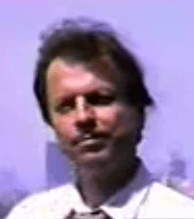Michael W. Fordyce

Michael W. Fordyce (December 14, 1944 – January 24, 2011) was a psychologist and pioneer researcher in the field of empirical happiness measurement and intervention.[1] As a forerunner who approached "happiness" as an applied science, he ushered-in the modern academic branch of Positive Psychology[2][3]
Fordyce contributed a happiness-measurement article to the journal Social Indicators Research, which ranked in the journal's top 2.4% most-cited articles.[4] He demonstrated that happiness can be statistically measured[5] and willfully increased (i.e. through "volitional" behavior).[6]
Fordyce worked at Edison Community College (Fort Myers, Florida) where he taught a data-driven "happiness training program" for over three decades.[7]
References
- ↑ Friedman, Haris. "The Legacy of a Pioneering Happiness Researcher" (PDF). Journal of Happiness Studies. Springer Science. Retrieved 1 July 2013.
- ↑ Duckworth, Angela. "Positive Psychology in Clinical Practice" (PDF). Annual Review of Clinical Psychology. University of Pennsylvania Library. Retrieved 1 July 2013.
- ↑ "Condolences for Michael W. Fordyce". tributes.com. Retrieved 27 September 2013.
I was always fascinated how the majority of modern findings were already in his 14 fundamentals. He truly was decades ahead of his time.
- ↑ Michalos, Alex. "Citation Classics from Social Indicators Research". Social Indicators Research. Springer Science. Retrieved 1 July 2013.
- ↑ Di Tella, Rafael; MacCulloch, Robert (23 June 2007). "Gross national happiness as an answer to the Easterlin Paradox?" (PDF). Journal of Development Economics. 86 (1): 22. doi:10.1016/j.jdeveco.2007.06.008. Retrieved 6 July 2013.
- ↑ Toepfer, Steven; Walker, Kathleen (2009). "Letters of Gratitude: Improving Well-Being through Expressive Writing" (PDF). Journal of Writing Research. 1 (3): 181. Retrieved 6 July 2013.
- ↑ Fordyce, Michael (1993). Psychology of Happiness. Cypress Lake Media. p. 2. ISBN 9780060394363.
Happiness... the one thing people want so much, is the one thing they know so little about...
External links
- GetHappy.net at the Wayback Machine (archived January 13, 2007), Fordyce's original site
- A Program to Increase Happiness: Further Studies USCD.edu
- Videorecording of his happiness training program on YouTube at Edison Community College
- Online obituary tribute "I never met Dr. Fordyce in person, but his online book...had a tremendous impact on my life"
This article is issued from Wikipedia - version of the 11/15/2016. The text is available under the Creative Commons Attribution/Share Alike but additional terms may apply for the media files.